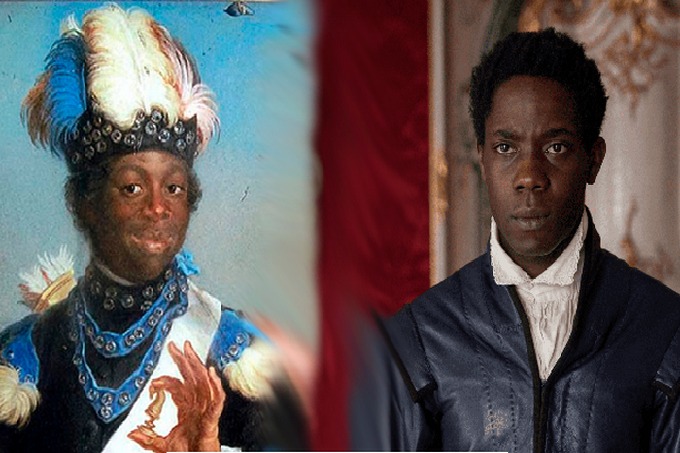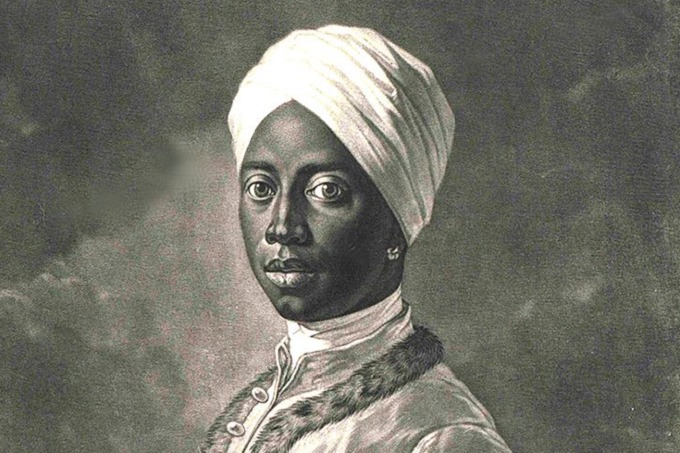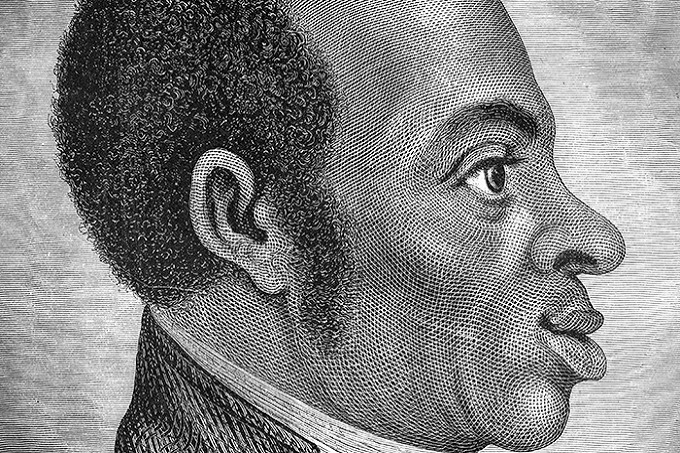Nigerian Prince: What are the first black masons of Europe known for?

Freemasons are an organization that has been widely noted in history. Freemasons promoted progressive social theories while denying the supremacy of “traditional foundations”, such as religious boundaries, the priority of national interests, or royal power’s inviolability.
The typical Freemason looks to our eyes as a wealthy and educated white man. However, long before the twenty-first century, at least two black Masons were known in history as servants for part of their lives.
Nigerian Prince: Angelo Soliman

In 2019, the film “Angelo” was released in Austria, which went almost unnoticed globally. At the same time, this is a significant film for Austrian culture: it is about one of the prominent and highly discussed public figures in Austria of the eighteenth century, the black Freemason Angelo Soliman.
Angelo Soliman was born in the first half of the eighteenth century quite far from Africa, on the territory of present-day Nigeria – the noble family to which he belonged still exists in Nigeria. At home, he was called Mmadi Make ( from 1721 – 1796).
As a child, he was captured during the hostilities, was sold to the Europeans as slaves, and thus ended up in Italy. One Italian marquise was just looking for a graceful black boy to replace the recently deceased.
The hostess Mmadi Make decided that a noble, first of all, and also an intelligent boy, should be introduced to European education and the Christian faith. So Angelo got his European name, and so his future was laid.
At the age of about thirteen, Angelo was presented to Prince George Christian, governor of Sicily. Angelo acted as the prince’s valet, traveled the world with him, and continued his education by reading book after book and listening to the complex adult conversations he attended as a servant.
The prince was a man who knew how to judge people according to their deeds (but he was not too free from prejudices that slaves were destined to be slaves). When he happened to take part in the battle, and the young Soliman saved his life, the prince began to treat his lackey with noticeable warmth and some respect.
In total, Soliman lived in the princely slaves for eleven years. Then the prince died, and Angelo found himself with a new owner, even more noble and enlightened – Prince Joseph Wenzel I of Liechtenstein.
The new owner highly appreciated the education and wonderful manners of the young Nigerian prince and made him the main servant. True, soon, the new owner also died, and his son again changed the position of Angelo.
Soliman became the tutor of the heir to the princely throne, Prince Alois. Angelo served Alois and his family faithfully for a very long time without complaining about his position. Perhaps he consoled himself by comparing his fate with the life of the philosopher Diogenes of Sinop, the same one from the barrel. In old age, Diogenes was in slavery and became a mentor to the sons of a Corinthian…
However, an event happened in the life of Soliman, after which he could no longer put up with his slave position. Angelo fell in love. Not for the first time, but for the first time, so hot to think only about the marriage union with his beloved. He easily – perhaps to his surprise – got his freedom to marry a white woman, the widow of a Danish general. He was forty-seven years old. In slavery, he spent at least thirty-five of them.
The most amazing thing happened just after the release. Angelo, then living in Austria, was accepted into the Masonic Lodge of Vienna, the same one that included the composers Mozart and Haydn. The Freemasons were a closed organization with a finicky system for admitting new members.
It seemed that a recent servant had no chance of being in their ranks. But Angelo was already known as an educated man and a rare mind, and the Freemasons saw progress and humanism as their goal. To reject racial prejudice was both progressive and humane. Soliman became an even more famous person and kept his own salon, that is, he regularly held meetings of creative and educated people. Mozart and even the Emperor of Austria regularly communicated with him.
The phenomenon of Soliman was discussed in Europe a lot and hotly. He refuted popular theories that the “descendants of Ham”, that is, Africans, are born incapable of enlightenment immediately, and the maximum that can be done for them is to baptize them so that they do not go to hell. Angelo, who not only managed to get an education but became a prominent figure in the cultural life of Austria, excited the minds.
Unfortunately, this is a story with a sad ending. After Soliman’s death, he was skinned and stuffed into an effigy. It adorned the office of the new, young Austrian emperor. The scarecrow was dressed up in rags wound, as fantasy tells, in trinkets and feathers.
So, according to the ideas of the Austrians, the folk African costume looked like. Later, Soliman will be put together with a stuffed black girl and Afro-Austrians – the caretaker of the Vienna Zoo.
Soliman’s only daughter Josefina fought against the mockery of her father’s body for a long time. Even the Archbishop of Vienna took her side, declaring that this should not be done with Christians. Both the archbishop and Josephine got it for obstinacy.
To begin with, the case was limited to a severe reprimand. But Josefina did not want to continue and hastily left Vienna. She married a German engineer whom she met in Krakow. Her father’s effigy was later destroyed during the Austrian Revolution.
Fundamentally commoner: Gustav Badin, Sweden

A conditional contemporary of Soliman – thirty years younger, the Swedish citizen Gustav Badin was no less, if not more famous. Nobody knows where he comes from. He was taken from home too young. All that the kid remembered about the house was, in fact, how his house burned. He seemed to call himself Kuchi, they christened the boy Gustav.
The surname “Badin” at first, was not even a surname. Gustav earned such a nickname already in Sweden, it meant “mocker”. And there, the nickname and surname have already been replaced.
One Danish captain gave a black boy like a curiosity or a toy to the Swedish state councilor von Reiser. The councilor presented Kuchi to Queen Louise Ulrika. This determined the fate of the boy. The Queen was a great lover of science, the founder of the Academy of Sciences in Sweden, and decided to conduct a scientific experiment.
The black boy was supposed to be brought up with princes and princesses, never forbidding him anything. As a result, it would be possible to see whether a black child is capable of absorbing civilization and culture without special efforts and coercion, or whether the “savage principle” will win in him.
Gustav took full advantage of the freedom provided. He fought the crown prince and teased everyone around him, including the Queen literally. He climbed the palace from top to bottom, sniffing out even the ancient secret passages, and filled his mouth with delicacies at the table. At the same time, he willingly sat with the royal children in the classroom, embraced the idea of a chivalrous attitude towards girls and women, read avidly – and not only adventures, knew how to demonstrate the best manners according to his mood, and spoke excellent, cultured Swedish.
Is it necessary to add to this that the experiment of Louise Ulrika was followed with interest by half of the scientists of Europe, and the experience with the upbringing of Gustav had a considerable influence on abolitionists (that is, against slavery) moods in society.
By adulthood, Badin spoke fluent Swedish, German, and French; He kept a diary in French. He knew Latin well. He understood old and fashionable philosophical currents and, by the way, became an atheist. He played chess virtuoso and knew all court customs, whether they concerned servants or noble persons. Louise Ulrike made him her chamberlain. After the death of the Queen, Gustav entered the service of her daughter, Princess Sofia Albertina.
The princess lived in solitude, did not get married, and many suspected that in fact, Gustav performed with her, rather, marital duties. There was even talk of illegitimate children born from this relationship. However, no one could present them, so, most likely, rumors remain rumors.
To get the latest stories, install our app here.
Badin, on the other hand, continued to visit the court and actively participate in court life constantly. He played in plays and danced in ballets, came up with a bunch of jokes about nobles (and each was very well-aimed), helped the court poet compose poetry.
In order to somehow eliminate the ambiguity of his position – such activity was not expected from the chamberlain – the nobles came up with a proposal to formalize Badin for some kind of court position. Badin flatly refused, and instead began to call himself a farmer. Indeed, the young king (by the way, also Gustav) gave him two or three farms. The Swedish nobility was frapped with such a joke, and Gustav just needed it.
He lived a long and apparently happy life. He joined the Masonic lodge, like Soliman. He collected a huge library (unfortunately, it has not been preserved). Although the protege of the royal family could count on the rank and marriage alliance with some kind of natural daughter of a nobleman, Gustav remained a commoner in principle and married the same commoners.
With his first wife, Elizabeth, the daughter of a grocer, Badin spent a decade and a half. Alas, they had no children. The first pregnancy ended in a difficult delivery, and Elizabeth lost the ability to give birth. The child survived, it was a girl. But the baby did not live long. Infant mortality in the eighteenth century was high…
After the death of Elisabeth, Gustav married a second time. The next wife was named Eleanor Norel. It is known that her family adored Badin, and they all communicated warmly and tightly. Eleanor and Gustav adopted a girl named Christina because they couldn’t conceive. Badin lived a long and happy life, remaining influential both among the Freemasons and at court, and died, taking with him many secrets of the royal family to the grave. He was buried in a Christian way. Badin’s diaries are kept in the Uppsala University Library. In the history of Europe, blacks were noted not only as Freemasons and lackeys.


